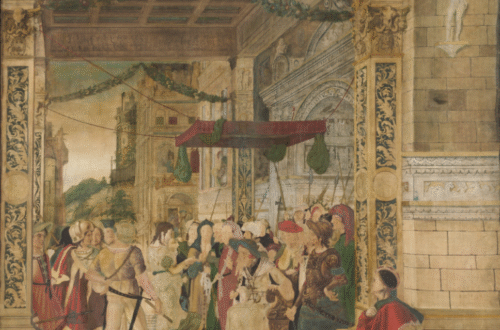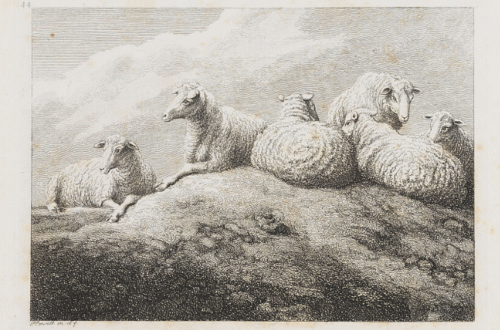Today, I invite you to open your hearts to a passage from Genesis that speaks to us in a deeply relevant way. As we continue navigating a world filled with financial anxiety, inflation, and uncertainty, let us listen carefully to a time in Scripture when people, too, found themselves asking: What do we do when there’s just not enough to go around? Let us turn now to Genesis 47:13–21 (NKJV), and hear the Word of the Lord.
Genesis 47:13–21 (NKJV)
13 Now there was no bread in all the land; for the famine was very severe, so that the land of Egypt and the land of Canaan languished because of the famine.
14 And Joseph gathered up all the money that was found in the land of Egypt and in the land of Canaan, for the grain which they bought; and Joseph brought the money into Pharaoh’s house.
15 So when the money failed in the land of Egypt and in the land of Canaan, all the Egyptians came to Joseph and said, “Give us bread, for why should we die in your presence? For the money has failed.”
16 Then Joseph said, “Give your livestock, and I will give you bread for your livestock, if the money is gone.”
17 So they brought their livestock to Joseph, and Joseph gave them bread in exchange for the horses, the flocks, the cattle of the herds, and for the donkeys. Thus he fed them with bread in exchange for all their livestock that year.
18 When that year had ended, they came to him the next year and said to him, “We will not hide from my lord that our money is gone; my lord also has our herds of livestock. There is nothing left in the sight of my lord but our bodies and our lands.
19 Why should we die before your eyes, both we and our land? Buy us and our land for bread, and we and our land will be servants of Pharaoh; give us seed, that we may live and not die, that the land may not be desolate.”
20 Then Joseph bought all the land of Egypt for Pharaoh; for every man of the Egyptians sold his field, because the famine was severe upon them. So the land became Pharaoh’s.
21 And as for the people, he moved them into the cities, from one end of the borders of Egypt to the other end.
We live in difficult economic times. Gas prices fluctuate, grocery bills rise, and many are struggling to make ends meet. As of today (July 20, 2024), we’re just months away from another presidential election, and one of the leading concerns among voters is—again—the economy. It’s a familiar concern. People are worried. Not just about jobs, but about justice. Not just about wages, but about worth.
Some believe the answer lies in redistribution—giving everyone an “equal share.” That idea fuels certain progressive voices, and even versions of Christianity that preach a “social gospel” rooted in liberation theology. Now, caring for the poor is indeed a Christian calling, but some versions of this theology go further—suggesting that real Christianity means becoming poor, like Mother Teresa, to prove our faith. But friends, even Jesus Himself said:
Matthew 26:11 (NKJV)
“For you have the poor with you always, but Me you do not have always.”
In that moment, Jesus was reminding His disciples—and us—that poverty is a persistent reality in a fallen world. And while we are called to care for the poor, we must also face the hard truth: there is not enough money to go around.
We worry about money because it touches everything. And yet, we must ask: Where is our faith when the money fails?
Let’s go back to Genesis 47:15. It says:
“So when the money failed in the land of Egypt... the people said, ‘Give us bread, for why should we die? For the money has failed.’”
Four times in this passage we hear it: The money is gone. Failed. Empty. Powerless to solve the problem.
When the people’s money failed, Joseph offered them options—first, trade your livestock. Later, your land. Finally, even your labor. Pharaoh ended up owning nearly everything. The people became dependent servants—just to survive.
Now imagine a scenario in our own day: A government overtaxes landowners. Farmers, unable to pay, are forced to sell. Slowly, the government absorbs more land, more control. That’s not far-fetched. It happened then—it could happen now.
And while Joseph was a godly man, he was also acting under Pharaoh’s authority. He didn’t enslave the people against their will—they came to him, desperate. As John Lange writes:
“When one is hungry, they might do just about anything in order to feed their belly.”
Indeed, we will trade almost anything—our independence, our resources, even our freedom—when we are desperate.
Jesus’ Teaching on Treasure and Trust
But Jesus offers us a radically different path. Not one of fear, but faith.
Matthew 6:19–21 (ESV)
“Do not lay up for yourselves treasures on earth… but lay up for yourselves treasures in heaven… For where your treasure is, there your heart will be also.”
Matthew 6:24 (ESV)
“No one can serve two masters… You cannot serve God and money.”
Matthew 6:30–33 (ESV)
“…O you of little faith… your heavenly Father knows that you need [these things]. But seek first the kingdom of God and his righteousness, and all these things will be added to you.”
Friends, the money will fail. The stock market will crash. Governments will rise and fall. But God is still in control. If our hope is in money, our hearts will be anxious. But if our hope is in God, we will find peace.
The people of Egypt didn’t need more coins—they needed deliverance. Eventually, Egypt would become a place of slavery for Israel, and God would send Moses to set them free. Egypt had gods and goddesses, but only the God of Abraham, Isaac, and Jacob could truly provide.
And today, many still bow to modern idols—wealth, power, fame—but the Bread of Life, Jesus Christ, says: Come to me, all you who are weary and burdened, and I will give you rest.
We do not need a full bank account to get into heaven. We need a faithful heart, trusting in God’s mercy and grace.
“When the Money Failed” Sermon by Rev. Dennis Alan RobertsFulbright, Shubert, NE July 20, 2024.





